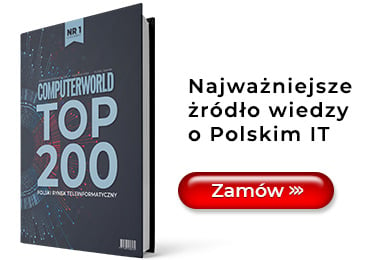Please hold to be connected
-

- Sławomir Kosieliński,
- 19.04.2004
Mobile phones to let
14 years ago, nobody expected the mobile telephony to dominate the market. At the time, the Polish government decided to launch the NMT 450 MHz analog network. The network was operated by PTK Centertel, a company of the state telecommunications monopolist, and France Telecom. Before the popularization of the GSM technology, the mobile phone market was symbolized by a businessman with the famous Nokia model, the so-called "radiator". That was the ultimate swank. A mobile phone shown off in public increased the prestige of its user. "Shown off" is a good word, since actual phone calls were rarely made; the incoming calls were charged as well. No wonder that PTK Centertel was successfully gaining the market on which its mother company, TPSA, still did very poorly. A businessman gave up months of torment with TPSA and chose to buy a mobile phone.
Finally, competition appeared in 1996. Polkomtel (Plus GSM) and Polska Telefonia Cyfrowa (Era GSM carrier) commenced their operation. The former had state-owned companies (Polskie Sieci Elektroenergetyczne) or companies with shares owned by the State Treasury (PKN Orlen) as its shareholders. The latter gained a major investor - Deutsche Telekom.
The mobile phone boom dramatically changed the telecommunications market in Poland. Although the mobile telephony market penetration in Poland is half of that in the Czech Republic (almost 100%), not to mention prices, a mobile phone is no longer a symbol of luxury and has become an indispensable part of life.
As a result, the number of mobile phone subscribers (the figure will reach 21 million this year) has exceeded the number of fixed phone subscribers by almost 100% (12.6 million).
Polska Telefonia Cyfrowa (Era network operator) is the market leader. It has 6.2 million customers (2.9 million post-paid and 3.3 million pre-paid). Centertel is the runner-up with 5.7 million users (Idea: 3.2 million and 2.5 million respectively), followed by Polkomtel with 5.5 million customers (Plus GSM: 2.5 million and 3.0 million respectively). Moreover, their operation is very profitable. Last year, the companies obtained record profits: PTC (Era) earned EUR 137 million, and Polkomtel (Plus GSM) - EUR 158 million. Even Centertel began to profit after years of multimillion debt.
Hence, fixed telephony is becoming a thing of the past. Voice is transmitted mainly via mobile phones. Fixed network carriers can count only on data transmission and broadband services.
The real competition begins
Poland's accession to the European Union means a real opening of the market to competition.
According to the telecommunications market analysts, the refreshing influence of the European Union's standards may force the Polish regulatory body (Telecommunications and Post Regulatory Office) to stop playing around with operators and to start the market regulation. It should be remembered that the new telecommunications law, compliant with the EU directives, will enable regulation of as many as 18 markets (from long-distance calls up to data transmission). If one polish carrier gains a significant market position (25% market share), the regulatory body may impose certain pricing strategy on them.
According to the Telecoms Index B2B report by TNS OBOP, approx. 94% of companies use local call services of Telekomunikacja Polska. Netia is the local call carrier for 11% of companies. Some businesses, but not many, use other local call providers, such as Dialog (2%), El-Net (1%) and others (3%). 77% of companies use long-distance call services of Telekomunikacja Polska. Netia is the long-distance call provider for 22% of companies and has a great advantage over NOM (4%), Tele2 (3%), Dialog (2%) and El-Net (2%). The international call services market is similar. TPSA services are used by 78% of companies. Netia's international services are used by 18% of organizations. The following positions are taken by Tele2 (3%), Dialog (2%), NOM (2%) and El-Net (2%).
TNS OBOP has developed a 10-grade scale of customer satisfaction with the carrier's services, where 1 means complete dissatisfaction and 10 means full satisfaction with services. Dialog ranked first among the fixed network operators (7.2 points), followed by Tele2 (6.8 points), Netia (6.6 points), NOM (6.4 points) and Telekomunikacja Polska (5.5 points). TPSA's domination on the market makes specialists from almost every third company recommend TPSA fixed telephony services (the research included 750 companies with over 10 employees). Netia was closest to the leader - it would be recommended by 13% of businesses.
As far as mobile networks is concerned, Plus GSM is the leader of the enterprise market with 45% of businesses as its customers. Era services are used by 41% of corporate customers, and Idea - by 28%. Plus GSM is the carrier for 37% of post-paid mobile phones. Era has a similar (37%) share in this segment. Idea provides services to only 26% of the market.
No wonder that 40% of all monthly expenses of businesses on mobile phones are Plus GSM's revenue. Companies' average bill per one phone for the Polkomtel network amounts to EUR 49. Bills of the Polska Telefonia Cyfrowa are slightly lower (approx. EUR 46). The lowest bills are in PTK Centertel (EUR 38).
On the mobile telephony market, the leading position is reflected in the level of customer satisfaction. The average satisfaction level with Plus GSM services was 7.7 points. The other players achieved slightly worse results: Era - 7.5 points; Idea - 7.3 points.
It is thus surprising that specialists from 29% of the surveyed companies would recommend mobile phone services provided by Era. 27% would recommend Plus GSM, and 21% - Idea.
However, the most shocking answer came to the question about the phone makes used by employees of Polish companies. It turns out that the enterprise market is dominated by Nokia (87% of all phones are from this vendor). Nokia is followed by Siemens (9%), Motorola (1%) and Sony Ericsson (1%). The selection goes in line with customer satisfaction and recommendations.
As many as 71% of specialists from the surveyed companies would recommend Nokia phones.

